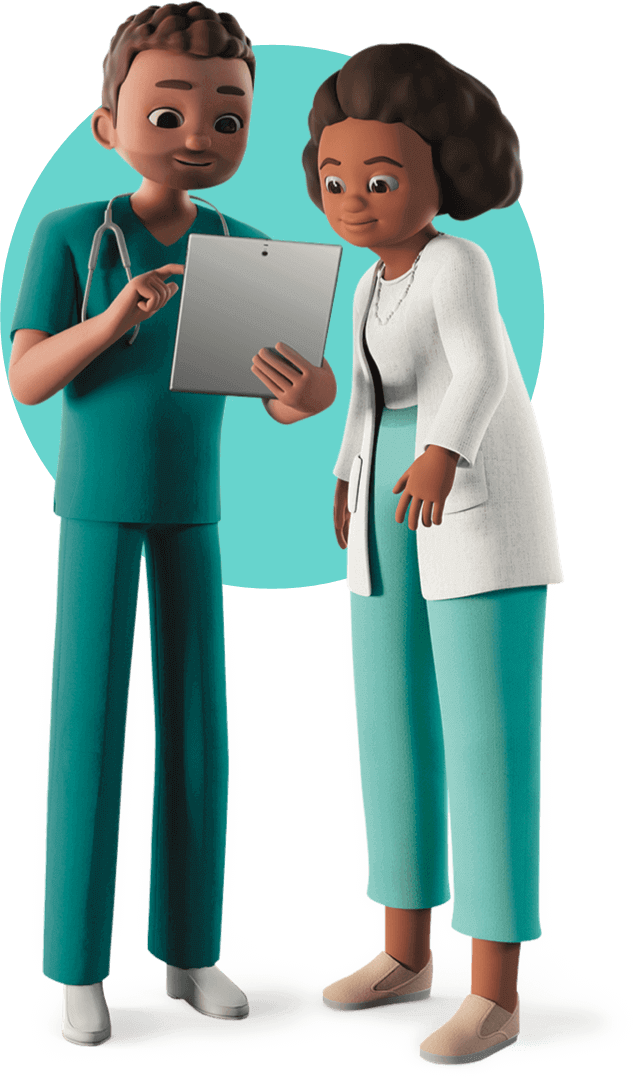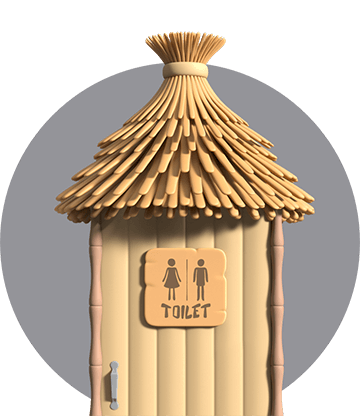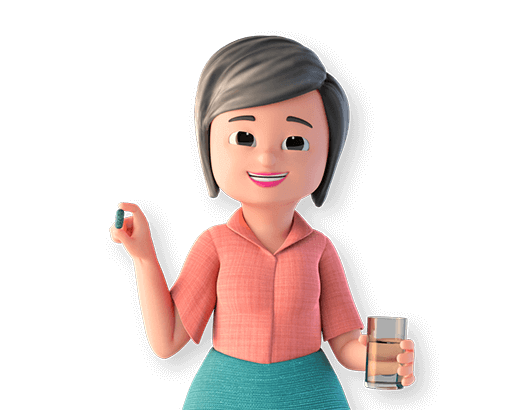WHAT IS A TREATMENT OPTION FOR OVERACTIVE BLADDER (OAB)?
The sooner you talk with your doctor about your symptoms, the sooner you can discover overactive bladder treatment options that may help

Behavioral therapies for overactive bladder
Your doctor may suggest behavioral therapies for OAB treatment
- Pelvic floor muscle training (“Kegels”)
- Establishing routine timing of bathroom trips
- Reducing fluid intake (especially at night) and avoiding food and drinks that are considered bladder irritants (for example, alcohol and caffeine)
Medications used to treat overactive bladder
There are 2 main types of prescription treatments available for treating OAB symptoms
- Beta-3 agonists (β3-agonists) work to lessen OAB symptoms by helping the bladder muscle relax so it can hold more urine
- Anticholinergics (ACHs) work to lessen OAB symptoms by helping to stop involuntary bladder contractions (the bladder squeezing itself without your control)

Remember, everyone is unique. No treatment is right for everyone, you may need to try several treatments before finding the one that works for you.
It's important to continue working with your doctor to find the best ways to manage your OAB symptoms.
Have you been dealing with bothersome OAB symptoms? Start a conversation with your doctor so you can discuss your options.


Before your appointment, try following these lifestyle tips to help with symptoms
- Stay hydrated
A total of 6 to 8 glasses of water is still recommended throughout the day - Keep moving
Strength training, aerobic exercise, balance, and flexibility are beneficial for overall health. Pelvic floor exercises can help decrease leakage episodes - Lose excess weight
Losing weight can help reduce leakage episodes. In some cases, women who lost 10% of their body weight reduced their leakage by half - Stop smoking
Coughing causes downward pressure on the bladder, which can lead to leakage. Just another great reason to quit smoking
Avoiding foods that are known bladder irritants may also be helpful
- Alcohol
- Carbonated beverages
- Citrus fruits and juice
- Corn syrup
- Spicy foods
- Milk
- Tea
- Vinegar
- Apples
- Chocolate
- Coffee
- Cranberries
- Honey
- Sugar and artificial sweeteners
- Tomatoes



